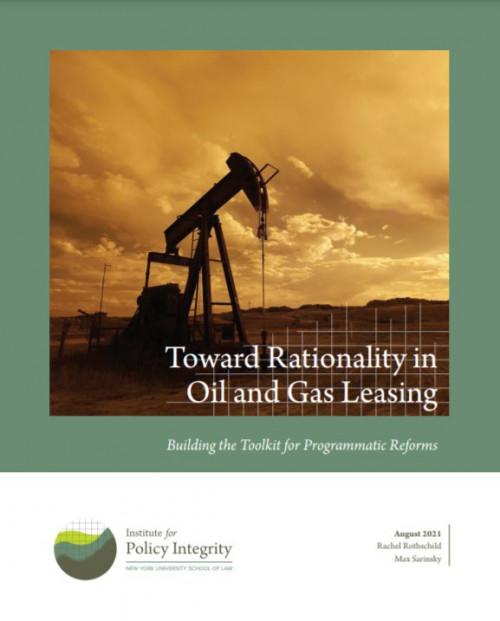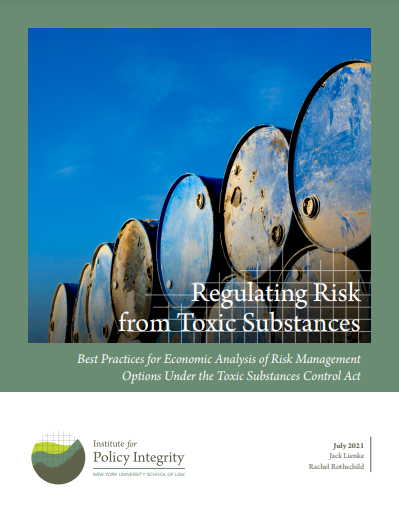-
Comments to FERC on LNG Compression Project in New York
Iroquois Gas Transmission System’s Enhancement by Compression Project would provide a significant increase in natural gas compression and transportation, potentially resulting in over 2.4 million metric tons in downstream greenhouse gas emissions. The Federal Energy Regulatory Commission, however, failed to estimate the project’s total emissions and climate damages. We submitted comments recommending that FERC consider the full range of upstream and downstream emissions and contextualize their impacts using the social cost of carbon.
-
Comments to DOE on Manufactured Housing Energy Conservation Standards
The Department of Energy (DOE) has issued a notice of intent to prepare an environmental impact statement for energy conservation standards for manufactured housing. We submitted comments urging DOE to use the social cost of greenhouse gas metric whenever it analyzes the effects of greenhouse gas emissions, whether in a regulatory impact analysis, environmental impact statement, or other decisionmaking process.
-
Toward Rationality in Oil and Gas Leasing
Building the Toolkit for Programmatic Reforms
Leasing public lands and waters for fossil-fuel extraction drives a quarter of U.S. carbon dioxide emissions. Our new report offers analytic tools for federal leasing decisions to drive policies that maximize economic and environmental welfare—nationally and locally.
-
Regulating Risk from Toxic Substances
Best Practices for Economic Analysis of Risk Management Options Under the Toxic Substances Control Act
This report identifies best practices EPA should adopt to holistically assess and weigh the costs and benefits of risk management options, allowing the agency to meet its statutory obligations and best enhance public welfare.
-
Amicus Brief on Borrower Defense Rule
We filed a brief in the U.S. District Court for the Southern District of New York supporting a challenge to the Department of Education’s replacement for a 2016 regulation known as the Borrower Defense Rule. The replacement rule makes it much harder for student borrowers who have been defrauded by for-profit colleges to get their loans discharged. We later filed a brief in the Second Circuit Court of Appeals after SDNY upheld the rule.
-
Comments on Environmental Analysis of Kingston Fossil Plant
Thte Tennessee Valley Authority (TVA) published a Notice of Intent regarding the Kingston Fossil Plant, discussing different alternatives for retiring and replacing fossil fuel-powered energy generation facilities. We submitted comments encouraging TVA to better contextualize the climate impacts of each alternative using the social cost of greenhouse gases.
-
Petition for Rulemaking for the Federal Trade Commission to Ban Drip Pricing
Drip pricing is a strategy used by some sellers to lure in consumers by advertising deceptively low prices, only to reveal hidden mandatory fees after the consumer is on the verge of completing a transaction. We submitted a petition to the Federal Trade Commission formally calling for a new rule banning the use of drip pricing.
-
Comments to EPA on Withdrawal of California Preemption Waiver
The Environmental Protection Agency is reconsidering its withdrawal of a waiver of preemption for California’s zero emission vehicle mandate and greenhouse gas emission standards. We submitted comments supporting the rescission of the waiver withdrawal.
-
Comments to EPA on Proposed Phasedown of HFCs
In the Environmental Protection Agency's phasedown of HFCs under the new HFC legislation, the agency calculates a new set of social cost values for HFCs directly, using the same approach as for the social cost of methane. We submitted comments supporting EPA's methodology and encourage EPA to incorporate the SC-HFC into the IWG process going forward.
-
Comments to DOE on Energy Conservation Standards for Clothes Dryers
The Department of Energy's preliminary technical support document indicates that DOE will use the domestic-only, interim social cost of carbon dioxide, methane, and nitrous oxide values developed under the now-repealed Executive Order 13,783. We submitted comments explaining that DOE should follow the reconvened Interagency Working Group’s February 2021 recommendations.






